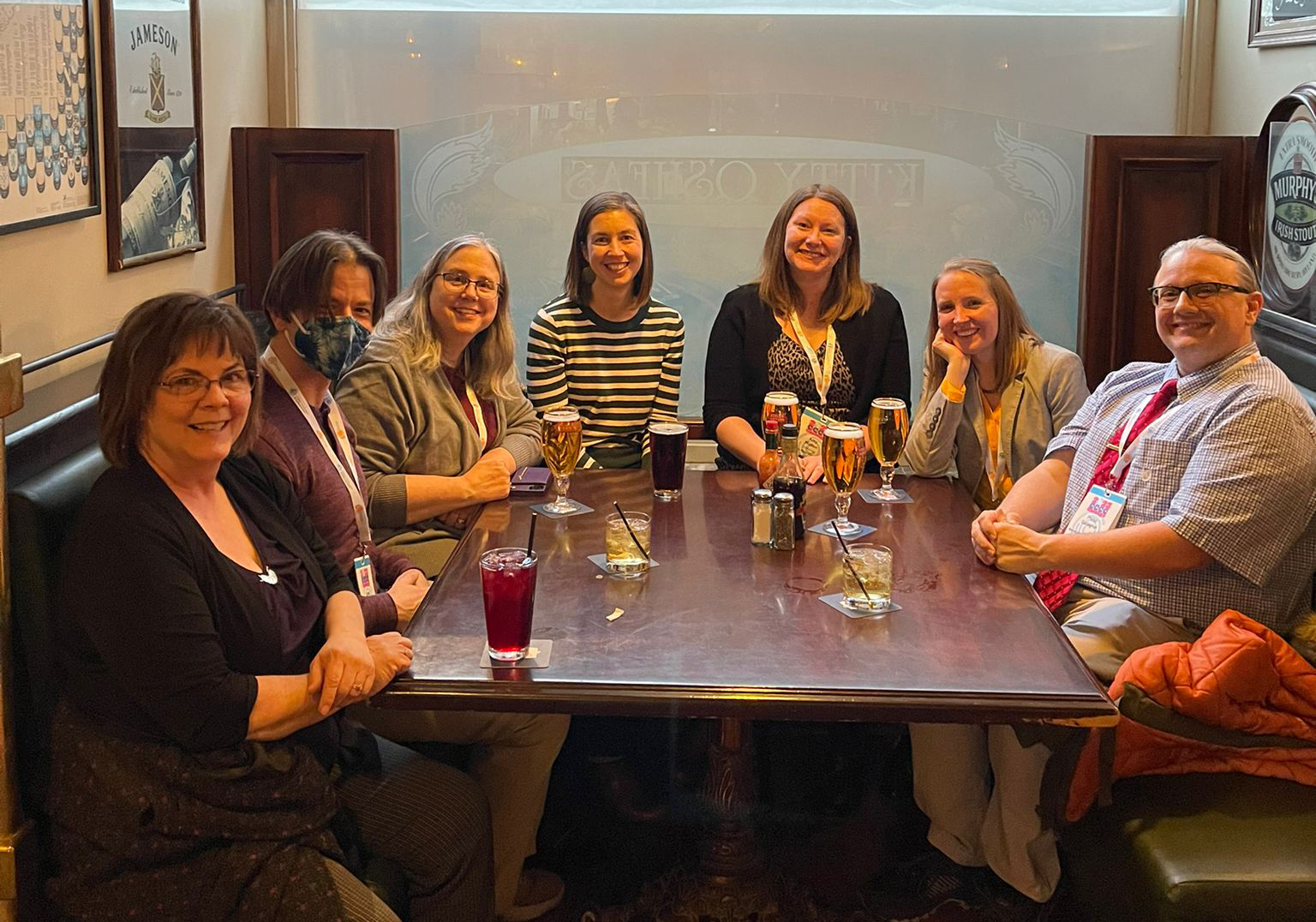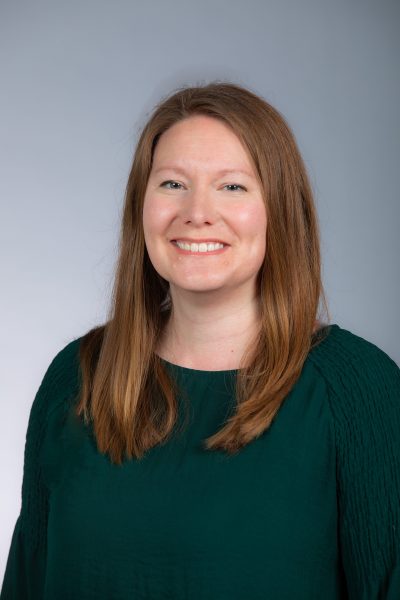Dispatch from CCCC’s: Student support and familiar faces
Author: lskramer
Author: lskramer
February brought the 2023 Conference on College Composition and Communication (CCCC). The conference’s theme, Doing Hope in Desperate Times, was well reflected in the relief and joy of this gathering of scholars, teachers, and administrators. Despite the cold and lake-effect snow in Chicago, I was delighted to travel to a conference for the first time in four years.
ISU Contributions:
To showcase ENGL 150 and ENGL 250’s effect on students’ psychological capacity and writing skills, Dr. Abram Anders and I presented the results of our ongoing longitudinal assessment. It is inspiring to see the broader impact of our courses quantified. You can see our results here: Promoting Psychological Capacities for Learning in Composition Courses.
Dr. Lesley Bartlett presented virtually on a panel discussion entitled, “We Are Not Okay: Managing Faculty Burnout and Seeking Hope in a Post-Pandemic World.”
On the technical communication side, Dr. Jo Mackiewicz delivered a talk on teaching technical communication: “Skilled Trade Literacies: Examining Overlooked Genres and their Exigencies in Technical Communication Classes.”
ISU Alumni:
Iowa State graduates are doing great work in communications across the country! There were some alumni in attendance (see photo, from left to right):

Dr. Kathy Rose, Utah Tech, Dr. Bryan Lutz, Ohio Northern University, Dr. Sue Pagnac, Central College, Dr. Erin Zimmerman, University of Nevada, Las Vegas, Amy Walton, Iowa State, Dr. Jill Grauman, College of DuPage, Dr. Phil B. Gallagher, Mercer University
Themes: Course Models, Design, and Practices for Student Support
My goal for CCCC’s was to explore how different programs approach student and instructor workload amid external pressures. Colorado State’s Rubric for examining course materials through DEI lenses (Doe & Adsit) will be a great tool for future course design and instructor training. I was also inspired to seek out sessions on alternative assessment methods after piloting a labor-based grading approach in an experimental ENGL 250 section. It is heartening to see other institutions exploring alternative assessment practices. Specifically, UC Davis has been piloting contract grading for their advanced communication courses (see USC’s contract grading approach). Embedded undergraduate peer mentorship programs were also a common theme in first-year composition, such as in CSU’s “jumbo” first-year writing course.
Finally, after all of the online learning, teaching, and course design we have experienced over the last few years, now is a great time to pause and reflect on how students experience courses through Canvas. Sessions like The State of Online Writing Instruction (Borgman et al.) provided resources like OWI Instructional Principles: Effective Practices in Action and food for thought on ways to survey user experience — how, when, and why are students accessing our Canvas course shells?
I look forward to exploring these ideas further in the coming year. Please reach out if you would like to continue the conversation!
 Amy Walton
Amy Walton
Assistant Director
ISUComm Foundation Courses
acwalton@iastate.edu